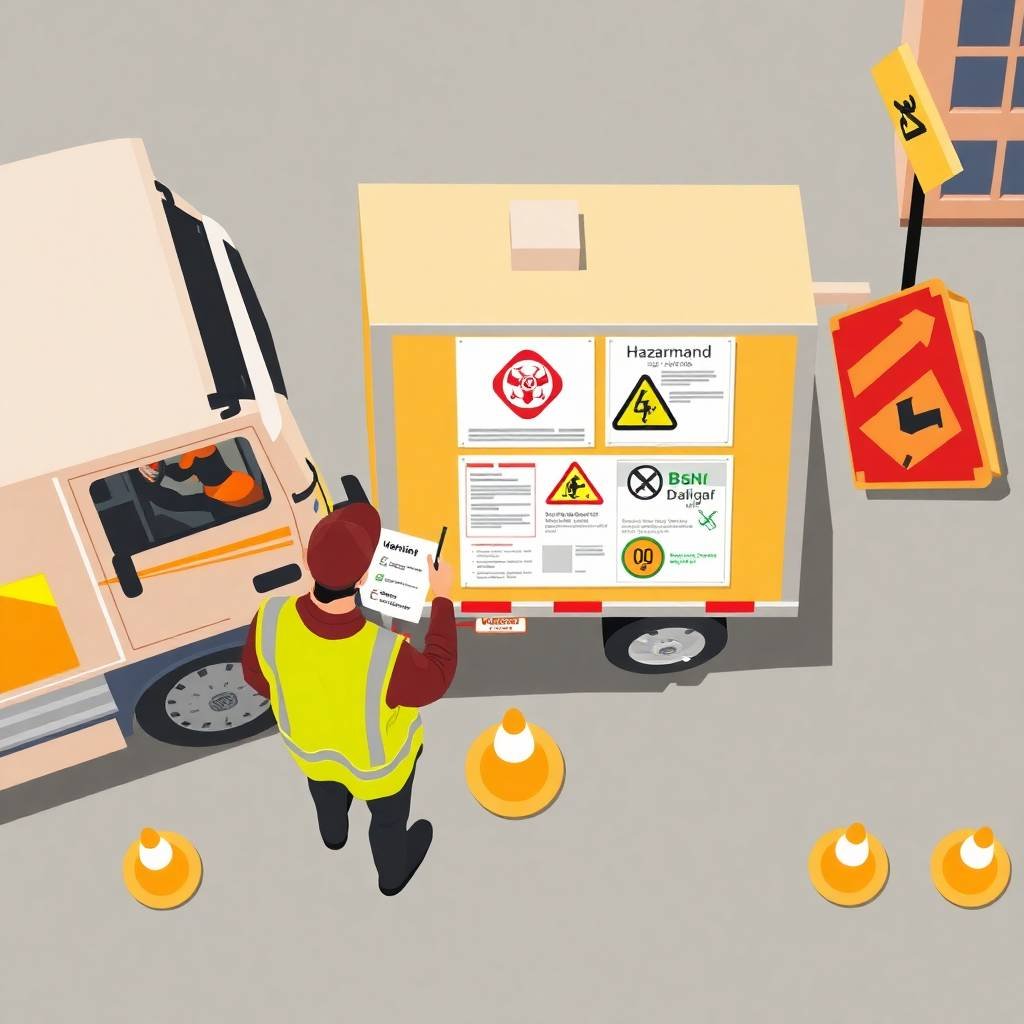1. Understanding the Basics of DOT Record Retention Requirements
Navigating the intricate world of DOT Record Retention Requirements is critical for carriers striving to remain compliant with FMCSA regulations. Failure to maintain proper records can result in costly penalties, operational delays, or even revocation of operating authority. Whether you’re a new entrant or a seasoned carrier, understanding these foundational requirements can protect your business and support long-term success.
Why DOT Record Retention Matters
The Federal Motor Carrier Safety Administration (FMCSA) requires motor carriers to maintain a range of documents for specific durations. These records help prove compliance during audits, inspections, and investigations. Examples include drug and alcohol test results, driver qualification files, maintenance records, and hours-of-service logs. For a full overview, visit Transportation.gov or consult the FMCSA official site.
Key Record Categories and Retention Timelines
Understanding what to keep and for how long is the foundation of DOT Record Retention Requirements. For instance:
- Driver Qualification Files must be retained for as long as the driver is employed and for three years after.
- Drug and Alcohol Testing Records must be kept for one to five years, depending on the nature of the test.
- Inspection and Maintenance Records are typically required for one year at the location where the vehicle is housed and for six months after it’s sold.
Get a deeper dive into driver qualification file requirements and common DQ file violations.
Compliance Pitfalls to Avoid
Many carriers overlook simple yet essential components of DOT Record Retention Requirements. Disorganized paperwork, expired records, or misfiled documents are red flags during audits. Review the most common FMCSA compliance mistakes and prepare with our DOT audit preparation checklist to stay on track.
Technology and Monitoring Solutions
Modern compliance solutions simplify retention tracking through digital tools. Consider using automated alerts, cloud-based storage, and centralized documentation systems. Our driver safety score management and DOT compliance checklist for owner-operators are ideal tools to monitor progress and maintain audit readiness.
Training and Internal Controls
Proper training ensures that your team understands the importance of compliance. Implementing robust internal policies and performing regular audits helps verify that your drug and alcohol testing program meets standards outlined in DOT drug and alcohol testing compliance. Our drug and alcohol testing management service provides end-to-end support.
Comprehensive Support Resources
If you’re struggling with where to begin, schedule a consultation to get personalized guidance. For more insights and regulatory updates, explore Truckers Compliance Hub, where you’ll find posts on FMCSA compliance requirements for trucking companies, pre-employment DOT drug testing, and random drug testing compliance.
You can also access services for UCR filing deadlines, IFTA/IRP/BOC-3 support, CSA intervention thresholds, and more. Don’t miss our FMCSA compliance help for trucking companies or our compliance services for owner-operators.
Know Your Legal Boundaries
Finally, familiarize yourself with our Disclaimer and Terms of Service to understand how we support your compliance efforts while maintaining regulatory accuracy.
Staying on top of DOT Record Retention Requirements is not just about avoiding penalties—it’s about operating a safe, responsible, and professional transportation business.

2. Create a Digital Record Management System That Works
In the fast-paced world of transportation compliance, creating a reliable digital record management system is no longer a luxury—it’s a necessity. For motor carriers and owner-operators alike, maintaining compliance with DOT Record Retention Requirements can be overwhelming without the right systems in place. Leveraging technology to streamline documentation is key to avoiding costly errors and ensuring audit readiness.
Why DOT Record Retention Requirements Matter
Compliance with DOT Record Retention Requirements isn’t optional. The FMCSA mandates that trucking companies maintain various records, from driver qualification files to drug and alcohol test results, each with specific retention timelines. Failing to meet these standards can result in violations, penalties, and even revoked operating authority. To stay informed, reference the FMCSA official website and Transportation.gov.
Start With a Centralized Digital Platform
The foundation of a successful system lies in centralizing all compliance records. Whether it’s for driver qualification file requirements or DQ file violations, a centralized digital dashboard enables easy access, timely updates, and better oversight. Ensure your platform supports searchable file storage, automatic reminders, and secure cloud backups.
Automate Reminders and Compliance Deadlines
One of the most effective ways to stay compliant with DOT Record Retention Requirements is through automation. Alerts for random DOT drug testing requirements, pre-employment drug testing, and document renewals help avoid lapses that could trigger a compliance review. Our drug and alcohol testing management service can help automate and track testing records effectively.
Custom File Organization for Record Types
Not all records are equal—some must be retained for one year, others for up to five. Tailor your file structure according to DOT compliance checklist standards. Label folders clearly for categories like FMCSA Clearinghouse compliance, vehicle maintenance, or driver drug and alcohol testing programs. This prevents errors during audits and supports regulatory transparency.
Plan for DOT Audits and Reviews
An efficient digital system also prepares you for audits. Having an organized record management strategy ensures that documents are available on demand for DOT audit preparation. Need help? Use our DOT audit preparation service to get expert guidance and audit-ready organization.
Integration with Other Compliance Services
To fully meet DOT Record Retention Requirements, your digital system should integrate with broader compliance efforts, including CSA intervention thresholds, driver safety score management, and UCR filing assistance. For support with related programs like IFTA/IRP/BOC-3 filing, integrated management tools save time and ensure accuracy.
Get Expert Support and Stay Compliant
Still unsure where to start? Schedule your consultation and let our experts at Truckers Compliance Hub walk you through a tailored solution. Explore our library of compliance posts, including FMCSA safety measurement system updates and how to correct FMCSA violations.
For owner-operators, we offer targeted help through FMCSA compliance services for owner-operators, as well as new entrant audit survival tips. You can also explore our broader offerings for trucking companies.
To better understand how we handle your data and services, visit our Disclaimer and Terms of Service.
A well-designed digital record management system is the cornerstone of reliable compliance. With the right tools and expert support, meeting DOT Record Retention Requirements becomes a streamlined, stress-free process that strengthens your business for the long haul.

3. Know Which Records Have the Longest Retention Timelines
Understanding which records to keep—and for how long—is essential for maintaining compliance with DOT Record Retention Requirements. For motor carriers, owner-operators, and fleet managers, failing to follow these rules can result in severe penalties, violations, and even suspension of authority. Having a clear strategy for managing long-term records is key to passing audits and protecting your business.
Why Long-Term Retention Matters
The Federal Motor Carrier Safety Administration (FMCSA) enforces strict guidelines on document retention. Certain records must be preserved for several years to comply with DOT Record Retention Requirements. The FMCSA website and Transportation.gov outline detailed expectations that every carrier must follow.
Knowing which documents require the longest retention timelines ensures you’re audit-ready at all times. For comprehensive support, you can also explore the DOT compliance checklist tailored for truckers.
Driver Qualification Files (DQFs)
Driver qualification files are among the most critical documents to retain. According to DOT Record Retention Requirements, most elements of a DQF—such as employment history, driving records, and medical certificates—must be kept for as long as the driver is employed and for three years thereafter. For help maintaining compliant files, visit our driver qualification file requirements and DQ file violations FMCSA guides.
Drug and Alcohol Testing Records
Drug and alcohol compliance is another high-risk area with lengthy retention requirements. Records of positive test results, refusals, and return-to-duty processes must be kept for five years. Random and pre-employment test results may need to be stored for one to two years depending on the outcome. Our drug and alcohol testing management service ensures you don’t miss any compliance steps. You can also explore drug and alcohol testing compliance and driver drug and alcohol testing program articles for more insights.
Accident Register and Inspection Reports
Under DOT Record Retention Requirements, accident registers must be retained for three years. Vehicle inspection reports, maintenance logs, and repair records also fall into this category. These are critical during audits and reviews. Need guidance? Our DOT audit preparation services provide expert help for organizing and presenting these records properly.
Integrate Record Retention into Your Digital System
A digital record management system is your best defense against costly errors. With automated alerts, cloud-based storage, and proper document labeling, you’ll stay compliant effortlessly. Learn how to structure your digital system in our post on how to correct FMCSA violations and explore FMCSA compliance mistakes to avoid.
Compliance Support and Resources
Need help identifying which documents require long-term retention? Schedule a free consultation today. Explore more insights at Truckers Compliance Hub including topics like CSA intervention thresholds, UCR filing deadlines, new entrant audit survival tips, and FMCSA compliance help for trucking companies.
Owner-operators can also explore FMCSA compliance services for owner-operators and our DOT compliance checklist for owner-operators.
Review our Disclaimer and Terms of Service to understand how we support your compliance journey.
Understanding and adhering to DOT Record Retention Requirements is crucial for maintaining a compliant and successful trucking operation. With the right tools and support, managing long-term records becomes efficient and stress-free.

4. Avoid These Common Mistakes That Trigger Compliance Failures
Compliance with DOT Record Retention Requirements is non-negotiable for any motor carrier, fleet owner, or owner-operator aiming to maintain operating authority and avoid costly penalties. The Federal Motor Carrier Safety Administration (FMCSA) outlines strict documentation and retention rules that carriers must follow, yet many fall into avoidable traps that trigger compliance failures.
Below, we’ll explore common mistakes carriers make and how to stay compliant with DOT Record Retention Requirements using best practices, tools, and professional support.
Mistake #1: Incomplete Driver Qualification Files
One of the most frequent violations occurs when Driver Qualification Files (DQFs) are missing documents or not updated. These files must contain employment history, driving records, medical certificates, and more. According to DOT Record Retention Requirements, DQFs must be maintained for the entire period of employment and for three years afterward.
To avoid this mistake, refer to our detailed driver qualification file requirements and DQ file violations FMCSA resources. Ensure your files meet current standards using our DOT compliance checklist or the owner-operator version.
Mistake #2: Poor Drug and Alcohol Testing Documentation
DOT Record Retention Requirements also mandate strict timelines for storing drug and alcohol testing records. Failure to retain pre-employment and random drug test results properly is a frequent source of FMCSA violations. You can prevent this with services like drug and alcohol testing management and by referencing our compliance articles on pre-employment testing and random testing requirements.
For a complete program setup, review our driver drug and alcohol testing program and drug and alcohol testing compliance.
Mistake #3: Disorganized Recordkeeping Systems
Even if you’re collecting the right documents, failing to organize and store them in accordance with DOT Record Retention Requirements can put you at risk. A well-structured digital filing system can help avoid violations during audits. Learn more from our guide on how to correct FMCSA violations and use driver safety score management tools to monitor compliance health.
Mistake #4: Ignoring CSA Intervention Thresholds
Noncompliance can escalate quickly if intervention thresholds are crossed. Use tools like the FMCSA Safety Measurement System SMS 2025 and our CSA intervention thresholds service to stay within safe limits.
Mistake #5: Inadequate Audit Preparation
When audit time comes, lack of readiness can expose even minor violations. Prepare in advance using our DOT audit preparation services and the updated 2025 audit preparation guide. Our article on FMCSA compliance mistakes breaks down what to avoid during this critical time.
Get Support Today
Ready to improve your compliance strategy? Schedule your appointment with one of our specialists. Explore the latest topics on Truckers Compliance Hub and get more help with FMCSA compliance help for trucking companies or services for owner-operators.
Don’t forget to review our Disclaimer and Terms of Service for a clear understanding of your responsibilities.
Following DOT Record Retention Requirements doesn’t have to be overwhelming. With the right resources, expert guidance, and an organized system, you can confidently avoid the most common mistakes that lead to compliance failures.

5. Train Your Team on Recordkeeping Best Practices
For trucking companies, staying in compliance with DOT Record Retention Requirements is critical to avoid costly fines, failed audits, and operational delays. Training your team on recordkeeping best practices is one of the most effective ways to ensure long-term compliance and operational efficiency. Whether you’re managing a small fleet or a large carrier operation, everyone on your team must understand the value of proper documentation.
Understand What DOT Record Retention Requirements Involve
The FMCSA and Department of Transportation require that specific records be retained for defined timeframes. These include driver qualification files, drug and alcohol testing documentation, maintenance logs, and more. Teams must be trained to understand that noncompliance with DOT Record Retention Requirements is a serious risk, especially during DOT audits.
To prepare for such events, review our comprehensive DOT audit preparation guide and check out services for audit readiness.
Start with the Essentials
Your team must first be trained on what files are required, how long to keep them, and how to store them securely. For instance, driver qualification file requirements are one of the most commonly overlooked components in the DOT Record Retention Requirements.
We also cover common violations in DQ file violations FMCSA and offer a practical DOT compliance checklist for both fleet managers and owner-operators.
Train on Drug and Alcohol Recordkeeping
Records related to drug and alcohol testing are subject to strict retention timelines. Your team needs training on pre-employment testing, random testing, and ongoing program requirements.
Helpful resources include our pre-employment drug testing requirements, random DOT drug testing, and our full drug and alcohol testing program. You can manage compliance with ease using our drug and alcohol testing management services.
Utilize Technology and Organizational Tools
Digitizing records and using tracking systems can streamline compliance. Be sure your team understands how to document safety scores and inspections. For example, monitoring the FMCSA Safety Measurement System (SMS) 2025 can help avoid violations.
Services like driver safety score management and CSA intervention thresholds can help teams stay on top of these metrics.
Correcting Errors Before They Cost You
Training should also include how to fix mistakes before they escalate. Our how to correct FMCSA violations article provides actionable guidance. For those newer to the industry, our new entrant safety audit survival tips are also a valuable part of your training program.
Get Professional Support
If your team needs hands-on guidance, schedule an appointment with a compliance specialist. Also, explore Truckers Compliance Hub for up-to-date articles like FMCSA compliance mistakes, Clearinghouse compliance, and drug and alcohol testing compliance.
Our full suite of services includes support for UCR filing deadlines, IFTA/IRP/BOC-3 support, and much more.
Find more helpful insights at FMCSA compliance help for trucking companies and services for owner-operators.
Lastly, please review our Disclaimer and Terms of Service to understand how we work to keep you compliant.
Training your team on DOT Record Retention Requirements not only protects your business but builds a culture of accountability and efficiency. Start today to build confidence and compliance into your daily operations.

6. Schedule Regular Internal Audits to Catch Errors Early
Staying compliant with DOT Record Retention Requirements is more than just a legal obligation—it’s essential for ensuring the long-term success and safety of your trucking business. One of the most effective strategies for maintaining compliance is conducting regular internal audits. These audits help you catch and correct errors before they become costly violations.
Why Internal Audits Matter
Internal audits allow you to proactively assess your current recordkeeping systems, safety procedures, and compliance strategies. Given the complexities of DOT Record Retention Requirements, it’s easy to overlook critical documents or misunderstand how long they must be retained. Regular reviews help you stay ahead of potential issues and ensure your team is meeting all obligations under the Federal Motor Carrier Safety Administration (FMCSA) and Department of Transportation guidelines.
For support in developing an audit-ready strategy, our DOT Audit Preparation services and compliance checklist for owner-operators provide essential tools and resources.
Key Areas to Review During Internal Audits
A successful audit begins with understanding the areas where compliance failures are most likely to occur. These include:
- Driver qualification file requirements
- Drug and alcohol testing compliance
- DQ file violations
- FMCSA Safety Measurement System (SMS) scores
- Pre-employment drug testing and random testing requirements
Ensuring you are accurately storing, maintaining, and disposing of records in line with DOT Record Retention Requirements is critical in each of these areas.
How to Conduct an Effective Internal Audit
Begin by setting a regular schedule—quarterly audits are ideal. Use a standardized checklist to assess documentation, retention timelines, and compliance procedures. Our detailed compliance mistakes guide and FMCSA compliance requirements overview can guide your process.
When discrepancies arise, don’t panic—use our how to correct FMCSA violations guide to bring your operation back into compliance. For newer carriers, our new entrant safety audit survival tips are a must-read.
Leverage Technology and Professional Support
Using audit tools, software, and professional compliance services can reduce the burden on your internal team. Our services in driver safety score management, drug and alcohol testing management, and CSA intervention thresholds help streamline the audit process and mitigate risks.
Looking for more support? Schedule your consultation today with a compliance expert to get personalized guidance for your business.
Keep Learning and Stay Updated
Regularly visit Truckers Compliance Hub for new content including insights on FMCSA Clearinghouse compliance and our driver drug and alcohol testing program. These resources provide current information on DOT Record Retention Requirements and industry best practices.
For a comprehensive overview of our compliance solutions, explore:
- FMCSA compliance help for trucking companies
- FMCSA compliance services for owner-operators
- Owner-operator service packages
Always refer to our Disclaimer and Terms of Service to better understand how our services support your compliance efforts.
Incorporating internal audits into your operations not only enhances your adherence to DOT Record Retention Requirements but also demonstrates your commitment to excellence and accountability in the transportation industry.

7. Partner with Compliance Experts to Stay Ahead of Regulations
Navigating the complex world of transportation compliance is no small feat. Trucking companies and owner-operators are expected to maintain strict adherence to DOT Record Retention Requirements, which cover everything from driver files to drug and alcohol testing documentation. Falling behind on these requirements can lead to costly violations, audit failures, and operational disruptions. Partnering with compliance experts ensures your business remains ahead of evolving regulations and safeguards your future.
Why Compliance Expertise Is Critical
The Federal Motor Carrier Safety Administration (FMCSA) and the Department of Transportation (DOT) have detailed rules about recordkeeping. Understanding and implementing these DOT Record Retention Requirements correctly can be overwhelming. A compliance expert not only helps interpret the regulations but also ensures your systems and processes are aligned for full compliance.
From DQ file violations to driver qualification file requirements, an expert partner will help audit your current practices, update outdated procedures, and manage retention schedules.
Addressing High-Risk Areas Proactively
Partnering with experts gives your team access to tools that address high-risk compliance zones like drug and alcohol testing, FMCSA Clearinghouse, and pre-employment DOT drug testing requirements. Many violations stem from misunderstandings about DOT Record Retention Requirements in these areas, particularly regarding how long and where to retain documentation.
Experts can also support you with services like drug and alcohol testing program management, random drug testing, and driver safety score management.
Stay Prepared for Audits and Updates
With DOT audit preparation and our comprehensive checklist for owner-operators, you’ll be ready for any regulatory review. Regular consultations help businesses avoid the most common FMCSA compliance mistakes and stay on top of the latest compliance requirements for trucking companies.
For new businesses, we offer expert guidance on new entrant safety audit survival tips and ongoing support with UCR filing deadlines, CSA intervention thresholds, and IFTA/IRP/BOC-3 support.
Get Personalized Guidance Today
Whether you’re struggling to implement DOT Record Retention Requirements or want to fine-tune your compliance strategy, professional support is key. Schedule your personalized consultation to speak with a compliance specialist who understands the unique challenges of the trucking industry.
You can also explore our in-depth resources, including:
- FMCSA compliance help for trucking companies
- Compliance services for owner-operators
- Additional owner-operator support options
Visit Truckers Compliance Hub regularly for updated content on FMCSA Safety Measurement System (SMS) changes, how to correct FMCSA violations, and more.
For more details on our site usage and policies, view our Disclaimer and Terms of Service.
Staying compliant with DOT Record Retention Requirements is not optional—it’s essential. By partnering with seasoned compliance professionals, you equip your business with the tools and guidance needed to remain competitive, safe, and fully compliant.

What are the most critical DOT Record Retention Requirements that trucking companies must follow?

The most critical DOT Record Retention Requirements include maintaining driver qualification (DQ) files for three years after a driver leaves, drug and alcohol testing records for five years, and inspection and maintenance records for at least one year. These timelines are crucial to ensure full DOT compliance and avoid audit penalties. For help setting up and monitoring your DQ files, visit our DQ File Setup and Monitoring service page.
How long should drug and alcohol testing records be kept under DOT Record Retention Requirements?

Under DOT Record Retention Requirements, drug and alcohol test results that are positive or violate DOT rules must be retained for five years. Negative test results must be kept for one year. These records are vital in the event of a DOT audit or safety review. For full compliance assistance, our Drug and Alcohol Testing Management service can guide your company through the retention process.
What happens if we fail to meet DOT Record Retention Requirements during a DOT audit?

Failure to meet DOT Record Retention Requirements can result in severe penalties, including hefty fines and possible out-of-service orders. Auditors may view missing or incomplete records as red flags for broader compliance issues. To prepare for and pass DOT audits with confidence, explore our DOT Audit Preparation services.
Are registration documents like UCR and IFTA also subject to DOT Record Retention Requirements?

Yes, registration documents such as Unified Carrier Registration (UCR), International Fuel Tax Agreement (IFTA), and BOC-3 filings are included in DOT Record Retention Requirements. These records help prove proper authority and tax compliance and should be kept for at least four years. If you need support filing or maintaining these documents, visit our IFTA, IRP, and BOC-3 Support service page.
How can we ensure we’re staying compliant with DOT Record Retention Requirements throughout the year?

The best way to maintain compliance with DOT Record Retention Requirements is through proactive recordkeeping and regular internal reviews. This includes setting up automated systems for document tracking and scheduling periodic audits. Our team can help you stay on top of recordkeeping and filing deadlines through services like UCR Filing Assistance, ensuring nothing slips through the cracks.
Igor Iturriaga is a transportation compliance expert and founder of Dynamic 305 Miami LLC. He helps owner-operators and fleets stay FMCSA-compliant and audit-ready. https://www.linkedin.com/in/igor-iturriaga-64503217/
